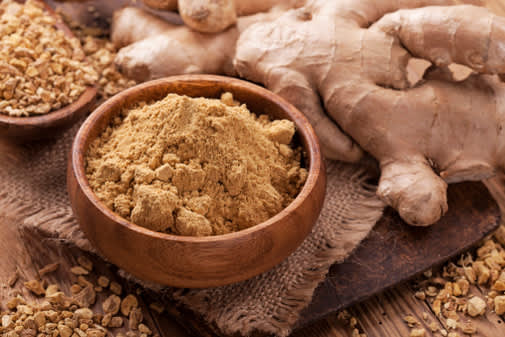Editor's Note: This article was originally written by patient expert Nir Salomon.
If I told you that spicing up your dinner with curcumin, a spice in the ginger family, would improve your response to treatment with medicine, would you believe me? If you have ulcerative colitis (UC) and you're on a common drug therapy, this might be the case.
According to data my team at Sheba Medical Center and our colleagues at the Chinese University of Hong Kong published in 2015 inClinical Gastroenterology and Hepatology, the official clinical practice journal of the American Gastroenterological Association,adding curcumin to the anti-inflammatory agent mesalamine makes the treatment more effective, putting more UC patients in remission.
Patients with mild-to-moderate UC are usually treated with oral and/or topicalmesalamine。当它似乎并不工作,the standard protocol is to bring in more intensivetreatments— such as corticosteroids, immunomodulators, and/orbiologics。These approaches require a step up — emotionally, financially, and in monitoring, and therefore require substantial commitment. For these patients, a safe, oral, inexpensive alternative therapy that requires little monitoring would be a significant advance.
But could a spice really answer our prayers?
Curcumin is a plant-based chemical derived from the Indian spice turmeric (Curcuma longa), a member of the ginger family and a very popular addition to Eastern cuisine. It has been used for centuries in Indian and Chinese herbal medicine to treat a wide range of inflammatory diseases. In more modern research, curcumin wasreportedto be superior to placebo in maintaining remission in UC patients for up to 12 months. However, until our study, it was not clear whether this agent could induce remission in UC patients.
Our study
We investigated the ability of curcumin, when taken with mesalamine, to induce remission in 50 patients with active mild-to-moderate UC who did not respond to an additional 2 weeks of the (oral + rectal) maximum dose of mesalamine. Curcumin and mesalamine seem to have different, but potentially complimentary methods of action in the body, which could increase effectiveness beyond that of either agent alone.
In the double-blind study, patients were randomly assigned to groups given curcumin capsules (3 gm/day) or an identical placebo for 1 month, with continued mesalamine. Our goal: to see how well patients responded to the combined treatment at the end of 4 weeks.
What we found
Remarkably, 54 percent of those receiving curcumin achieved clinical remission and weren’t showing any symptoms at week 4 compared with none of the patients receiving placebo. Endoscopic remission, meaning that inflammation of the colon was reduced when we looked at it, was observed in 38 percent of the curcumin group compared with none of those receiving placebo. Negative side effects were rare in both groups.
虽然还需要进一步的研究,我们认为,加入姜黄素对溃疡性结肠炎患者在美沙拉嗪是一种耐受性良好,廉价的方法,只是可能会奏效。那么,如果香料能显著提高对治疗的反应?你会在船上用这种方法?我最好的UC患者的建议是 - 你对印度食品装载前 - 谈话your doctorto discuss the risks and benefits of any dietary change.


